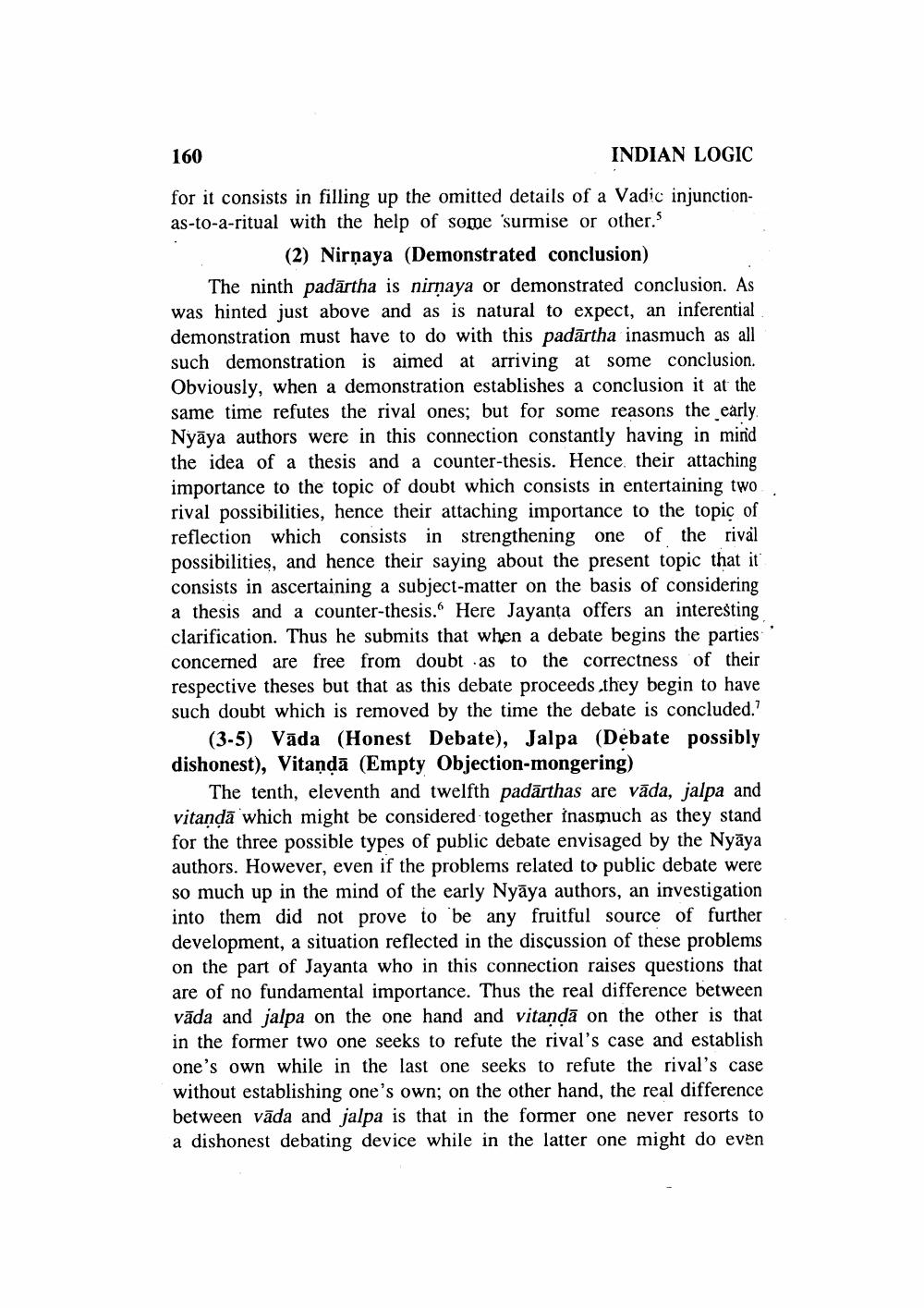________________
160
INDIAN LOGIC
for it consists in filling up the omitted details of a Vadic injunctionas-to-a-ritual with the help of some 'surmise or other."
(2) Nirņaya (Demonstrated conclusion) The ninth padārtha is nirnaya or demonstrated conclusion. As was hinted just above and as is natural to expect, an inferential demonstration must have to do with this padārtha inasmuch as all such demonstration is aimed at arriving at some conclusion. Obviously, when a demonstration establishes a conclusion it at the same time refutes the rival ones; but for some reasons the early Nyāya authors were in this connection constantly having in mind the idea of a thesis and a counter-thesis. Hence, their attaching importance to the topic of doubt which consists in entertaining two rival possibilities, hence their attaching importance to the topic of reflection which consists in strengthening one of the rival possibilities, and hence their saying about the present topic that it consists in ascertaining a subject matter on the basis of considering a thesis and a counter-thesis. Here Jayanta offers an interesting clarification. Thus he submits that when a debate begins the parties concerned are free from doubt as to the correctness of their respective theses but that as this debate proceeds they begin to have such doubt which is removed by the time the debate is concluded.
(3-5) Vāda (Honest Debate), Jalpa (Debate possibly dishonest), Vitandā (Empty Objection-mongering)
The tenth, eleventh and twelfth padārthas are vāda, jalpa and vitandā which might be considered together inasmuch as they stand for the three possible types of public debate envisaged by the Nyāya authors. However, even if the problems related to public debate were so much up in the mind of the early Nyāya authors, an investigation into them did not prove to be any fruitful source of further development, a situation reflected in the discussion of these problems on the part of Jayanta who in this connection raises questions that are of no fundamental importance. Thus the real difference between vāda and jalpa on the one hand and vitandā on the other is that in the former two one seeks to refute the rival's case and establish one's own while in the last one seeks to refute the rival's case without establishing one's own; on the other hand, the real difference between vāda and jalpa is that in the former one never resorts to a dishonest debating device while in the latter one might do even




